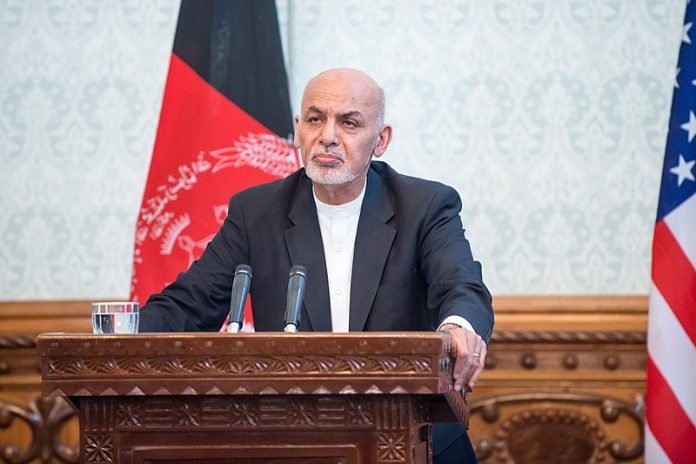President Ashraf Ghani has rejected a key postulate of the signed US-Taliban peace agreement, which would help kickstart the implementation of the accord. Ghani has refused to a prisoners swap deal with the Taliban, which according to the signed agreement was to occur before the commencement of the March 10, 2020, intra-Afghan talks. Instead, the president has asked the insurgent group to abandon its links with Pakistan. Meanwhile the Taliban also maintain that ‘all Afghan talks’ will not begin without the prisoners exchange deal.
Ironically, the president also seems reluctant to make the peace process inclusive and push to monopolize the upcoming talks with the Taliban in an already polarized, volatile and charged environment. In the aftermath of the deal, Ghani has visited Army Garrisons and ensured the personnel of full foreign support in the event the deal collapses or an intensification in fighting. It is no surprise that fighting has resumed across the country fading any chances of materialization of the signed agreement. Although the ongoing developments would ruin the possibility of a politically negotiated peace in Afghanistan, they would help Ghani elicit western support and also keep the chances of establishing an inclusive government, which includes the Taliban, at bay.
Even before the signing of the deal Ghani did not support the peace process. Since the beginning of the US-Taliban talks, US Afghanistan envoy, Zalmay Khalilzad had stressed the importance of an inclusive Afghan negotiating team. President Ghani, however, paid no heed to Khalilzad’s words. The early establishment of an inclusive Afghan negotiating team would have been instrumental in convincing the Taliban leadership of unity and consensus among Afghans. Ghani’s decision to prioritize the election process over peace was clearly an attempt to monopolize power and the peace process upon getting the second term.
Ghani’s efforts to consolidate power in the September 29, 2019, presidential election fell short of his expectations after the entire international community except the European Union (EU) and India refused to accept the election commission’s decision citing a lack of transparency. Domestically, led by Afghanistan’s Chief Executive, Abdullah Abdullah, many other presidential candidates, prominent members of civil society and the Election Complaint Commission obstructed the presidential elections’ results. As a result, Ghani was forced to postpone his oath taking ceremony for a few days. Adding insult to injury, the US State Department issued a statement emphasizing the next Afghan government be ‘an inclusive one.’ However, Ghani rebutted to establish an inclusive government and took oath as president of Afghanistan for second term.
Beforehand, Ghani refused to release 5000 against 1000 Taliban prisoners which was agreed to and written in the agreement between the representatives of US State Department and the Taliban. US Secretary of State Mike Pompeo’s statement calling Ghani’s decision an act to attract ‘media attention’, further aggravated the matter, prompting him to resort to his old tactic of using ‘Pakistan card’. With the US State Department’s statements praising Pakistan for the crucial role the country played to make the deal possible, Ghani’s demand for the Taliban to cut ties with Pakistan is actually a rebuke of the US commendation for Pakistan.
The inevitability of the Taliban holding legitimate power in Afghanistan would deplete Ghani’s authority on the one hand, and would help improve Pakistan-Afghanistan ties on the other. Moreover Pakistan has also been able to forge good terms with Abdullah’s faction. Ghani has remained anti-Pakistan in his outlook, trying to improve ties with India. India’s recognition of Ghani’s second term is also an effort to keep the Taliban from holding legitimate authority in Afghanistan. The Ghani-Modi alignment was clear from the former’s decision to not condemn Modi’s August 5, 2019 decision to annex Kashmir. It also indicates that the two also share India’s vision for Jammu and Kashmir, and also a “contiguous India Afghan border.
Ghani has also mustered support from the Pentagon and the EU. The State Department and the Pentagon had disagreements regarding the peace process with the Taliban. The US establishment in its 2018 National Defense Strategy (NDS) had identified Russia and China, as the most imminent threats to Washington. Hence abandoning the Heart of Asia (Afghanistan) would negate the main tenet of the NDS, as the war torn country’s key location is instrumental to check Russian and Chinese respective influences in the region, and there is also prospects of the two filling the vacuum created as a result of the US withdrawal. Moreover the visits of US Secretary of Defense, Mark Esper and NATO Secretary General, Jen Stoltenberg to Afghanistan on the eve of signing of the US-Taliban peace agreement in Doha and assuring President Ghani of full western support are also symbolic. The Europeans perceive the growing Russia-Taliban ties as a direct threat to their interests in the region. Germany, the largest NATO contributor to Afghanistan, has already extended the duration of its mission. Following the recent resumption of fighting in Afghanistan, the Germans were quick to blame the Taliban for violating the peace agreement, while the Russians criticized the US airstrikes.
By and large, President Ghani’s quest for consolidating power is only possible in the backdrop of the collapse of the US-Taliban peace agreement, which also means the prolongation of Afghan conflict and intensification of fighting. Yet the president has been able to get the tacit backing of the Pentagon, the EU and India. On the other hand, the successful implementation of the deal would not only leave behind an unprecedented example of a negotiated political settlement to a quagmire but also be instrumental in getting US President, Donald Trump another term to the Oval Office. The aims of both the presidents (Trump and Ghani) are same i.e. acquiring another term, however with totally opposite means: peace in Afghanistan paves way for the former, whereas conflict remains instrumental for the latter to consolidate power.
The views and opinions expressed in this article are those of the author.

Kashif Hussain holds M.Phil Degree in International Relations from Quaid i Azam University Islamabad. He is currently serving as Research Associate at Strategic Studies Institute Islamabad (SSII).


